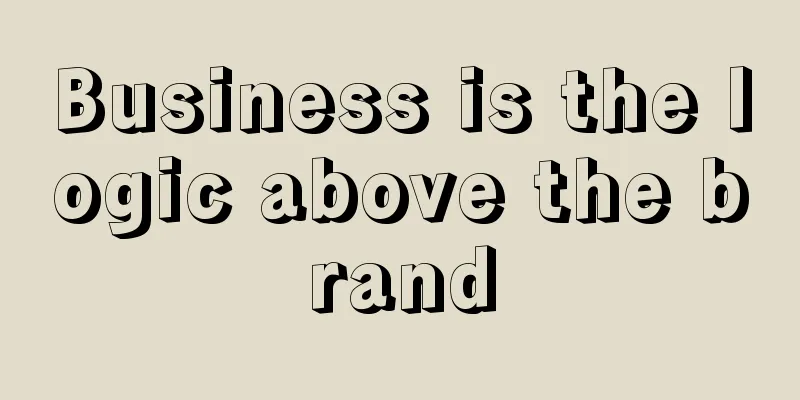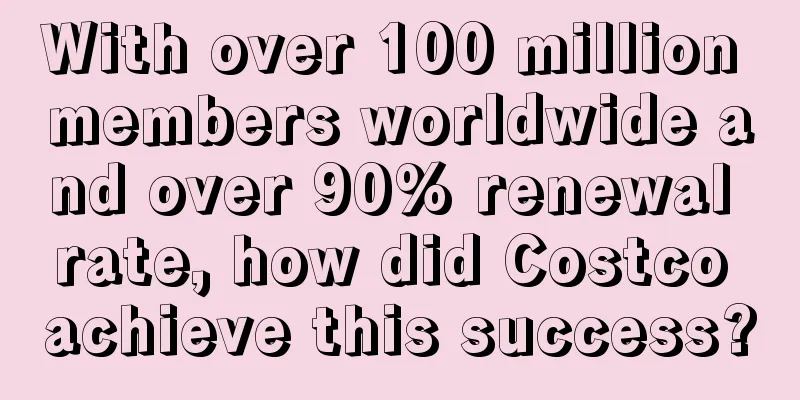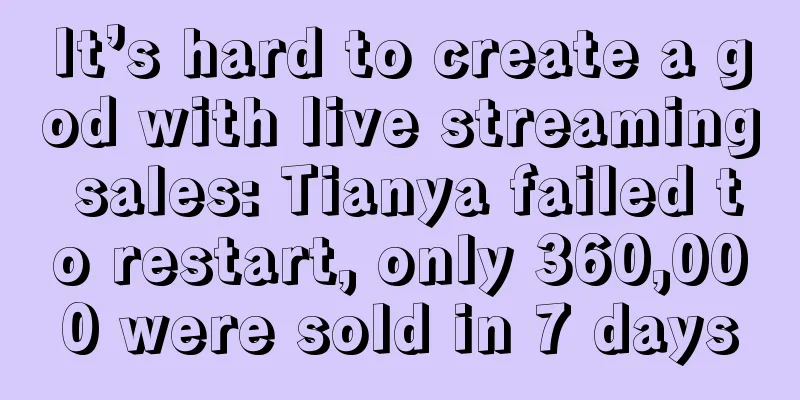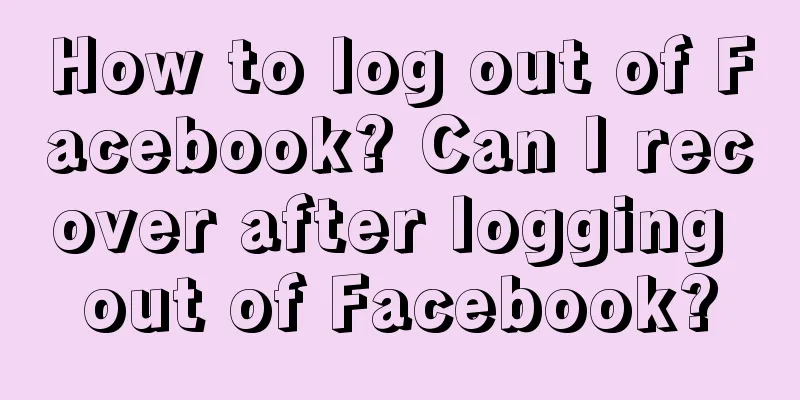Business is the logic above the brand

When we attach too many labels to a noun, the noun is drowned in labels. The more labels there are, the further away from the essence of the noun. Nouns are the boundaries of human cognition. "Namelessness is the beginning of all things; name is the mother of all things."
——Anything can be omitted from an advertisement, except verbs When it comes to brands, there are many labels attached to them. Brands are traffic, operations, and IP; brands are trust, premium, and emotions; brands are value, assets, and links. These are all labels and forms of brands, but not the essence of brands. What is the essence? The more labels you tear off, the closer you get to the essence.On the contrary, the more labels you put on someone, the further you deviate from the essence. Wearing tinted glasses will always lead you away from the essence. What is the construction of a person's underlying framework? It is the process of constantly approaching the essence and the process of constantly tearing off noun labels. In actual work, most brand work is either fragmented among the functional departments of the organization, such as marketing, channels, planning, new media, operations, and advertising; or it exists in the boss’s sudden inspiration or flash of inspiration. For example: While drinking and chatting, the boss suddenly got inspired and took out a napkin and wrote a few words: We will do this next year and make 1 billion in 5 years. 1. Brand is essentially a businessLet’s start with the brands we are familiar with, such as: Coca-Cola, Starbucks, and Nike; and then some: Ramen Says, Santonban, and Zhong Xuegao. Behind every brand lies a business; the essence of a brand is a business.
From Coca-Cola to Zhong Xue Gao, behind all the brands you know, there is a business. The essence of a brand is a business; or in other words, the essence of a brand is the process of discovering and creating a business and occupying business opportunities with the brand. Therefore, for a brand No. 1, how to understand the business is a logic beyond the brand. If the brand No. 1 only works on the brand level and can only do brand work, he will never understand the logic behind the brand. The solution to the problem often lies in finding the logical chain at the next level related to it. In other words: the problem of dynamic sales does not occur at the sales level, but may be a product problem; similarly, the primacy of the brand is reflected in the business owner's understanding of the business. The brand is only a tool for the business, not the whole business - only by deeply understanding the business can we deeply understand the meaning and purpose of the brand's existence. 2. Brand: Discover a businessFirst: What is a category? Category refers to the classification, storage and naming of relevant information by consumers. The value of business lies in classification, storage and naming. A name is a classification, and a classification represents a consumer demand. Classification, storage and naming directly affect consumers' purchasing choices. Consumers express their needs in categories and choose products in brands. Whether it is Coke or Sprite, Starbucks or Didi, the whole value of a brand lies in whether your brand is used to express the needs when consumer needs arise. Categories are consumers' colloquial expressions, connecting with needs and expressing needs. The value of branding lies in the fact that brand = category. The faster this equal sign is drawn, the more valuable it is. For example: Afu is a company whose category is also its brand. For a long time, this company has been known in the industry as "Afu is essential oil". For example: In April 2019, Youyou, a pickled pepper chicken feet brand popular in Sichuan and Chongqing, was launched. Youyou has created an annual income of 1 billion in a limited region with only one category and one flavor. Afu and Youyou are not only brands, but also a business (essential oil, pickled pepper chicken feet). For example, sales of premixed wine/fruit wine on Tmall and Taobao platforms increased by 154% in 2018 compared to 2017, and by 45% in 2019 compared to 2018. In 2020, the growth rate of fruit wine on Tmall 618 was as high as 120%, with fruit wine growing by more than 400% and plum wine growing by more than 1,000%. In the same fruit wine category, according to the big data released by JD.com, the compound annual growth rate of fruit wine sales on JD.com has exceeded 200% in the past five years. If you were a wine company and had chosen the right niche market of fruit wine three years ago, then, if nothing unexpected happened, it would have been a steep second growth curve for the organization. For this reason, category is not the cause but the result of choice. The category a brand chooses to enter largely predicts the outcome of the business - therefore, category is the matrix: consumers use categories to match their demands, use categories to express their demands, and use brands to select products. 3. Product Strength: Occupancy CharacteristicsFor a long time, Amul, Chunzhen and Mosilian have been the "three giants" in the yogurt market, accounting for more than 60% of the market share. It is actually very difficult for other brands to have a place in the yogurt category through a differentiated concept. In 2017, Junlebao Company pioneered the addition of cheese to yogurt, which not only enriched the nutritional value of yogurt, but also greatly improved the taste of yogurt. A new name was launched: Zhang Cheese La. The product was well received as soon as it was launched on the market. Within one year of its launch, it sold over 200 million packs, becoming synonymous with cheese yogurt. How to understand products, a combination of tangible and intangible things that meet consumer needs. Not only core products, form products, and additional products, but also the understanding of categories, characteristics, and differentiation.
——The core lies in the discovery, understanding and occupation of category characteristics. The key to grasping category differentiation and creating hot-selling products lies in product strength. Product strength is essentially the ultimate embodiment of category characteristics in product functions and benefits. Wang Baobao is freeze-dried fruit, Xiaoxiandun is fresh, Wang Xiaolu is fried first and then stewed, Sandunban focuses on instant noodles, and Ramen says it has ingredients and meat. These new consumer brands all surpass certain characteristics of the original category products in their products. These characteristics may be the consumption pain points of the original category, the unmet needs of consumers, or the undiscovered new scenarios.
4. Product segmentation: differentiation80% of business decisions come from how you discover new business opportunities brought about by category differentiation. This requires insight into the original category differentiation. A deep understanding of categories is the basis of category differentiation. The origin of demand has never changed, only the way to meet demand has changed. The birth of new category opportunities or category characteristics opportunities is a new brand opportunity. The power of "differentiation" makes the world colorful. Everything in the world originates from "differentiation", and "differentiation" is the inevitable trend of species development, "The Origin of Species". Category differentiation brings new market space, and differentiation is the driving force of business development. It is easier to create new brands in the process of category differentiation, because only new categories can bring new cognition, and new cognition brings new brand opportunities. 1. Zhong XuegaoThere is a basic practice in the dairy industry that first-rate milk is used to make baby formula, second-rate milk is used to make yogurt, third-rate milk is used to make ordinary milk powder, and fourth-rate milk may be used to make ice cream and popsicles. The criticism of traditional popsicles is that the taste is weakened due to the ingredients used. Zhong Xue Gao discovered consumers' demand for high quality, found a high-price niche, proactively differentiated product categories, and revolutionized Yili, Mengniu, and Wall's. 2. Ramen SaysMaster Kong and Uni-President have been struggling with the "unhealthy" image of instant noodles for many years, but they are helpless. Can instant food be both convenient and healthy? The demand has always been there, but it has never been met - Ramen Says has given its answer. Starting with Japanese fast food, the company priced its products between 12 and 20 yuan. It carved out a niche in a high-end market segment and became famous. It met the needs of convenience and health. Workers found a convenient and healthy late-night restaurant on RamenShuo. 3. Yuanqi ForestHappy Fat House Water, the A side of demand is greed, and the B side is fear. Magnifying beauty satisfies greed, while escaping fear brings action. Yuanqi Forest: Found the perfect combination between sugar-free and sparkling water - redefining sugar-free sparkling water. In December 2016, the brand Rancha, which was marketed with "0 sugar" as its selling point, became the first product of Yuanqi Forest. Rancha's performance was tepid, and following the concept of "sugar-free", Yuanqi Forest launched its first cucumber-flavored soda water in March 2018. During Tmall 618 in 2019, Yuanqi Forest took the top spot in the water beverage category with sales of 2.26 million bottles; since then, Yuanqi Forest has been more widely recognized. Yuanqi Forest has launched a long product line around sugar-free and low-sugar products.
4. San Dun Ban
Premium instant coffee is comparable to the instant coffee that used to be brewed with hot water and stirred (Nestle, Maxwell House), while Santonban can be brewed with ice water and ice milk, and does not need to be stirred, and it dissolves in three seconds. The quality and taste are almost the same as freshly ground coffee. It has become a must-have for office workers and travelers. Not only is the product differentiated, but its packaging is also good-looking. 5. Wang Baobao
For traditional oatmeal brands, 60% of their marketing and advertising expenses are used for sales promotion. A large amount of sales promotion expenses are invested at the terminal through display fees, entry fees, purchase-and-get-one-free fees, and rebate fees in the store, while their advertising expenses only account for 10% of it. Different from traditional oatmeal brands, Wang Baobao focuses on online channels: Xiaohongshu, Bilibili, Douyin, and influencers. The art of war lies in deploying more troops than the enemy at both the offensive and defensive points - Napoleon.
6. Xiaoxian StewThrough the differentiation of old categories through technology, a third choice is provided for consumers between dry bird's nest and instant bird's nest, solving the pain points of dry bird's nest being inconvenient and instant bird's nest being not fresh. Through KOL/celebrity exposing product features, the advantage of "freshness" is seized. Through public relations activities, the "Good Production Practice for Fresh Stewed Bird's Nest" standard was launched. 7. Bear ElectricUrban youths are under great pressure at work and are lazy in life. They often cook for one person, and traditional rice cookers steam too much rice, which is a pity to throw away. Bear Electric Appliances has actively differentiated the categories of home appliances, explored scenarios, and launched an electric lunch box that can steam rice and vegetables, cook soup, and has many other functions. It is good-looking and cheap.
Author: Houshan Keju, Source: WeChat public account "Lao Gao Business and Brand" |
<<: Data analysis is sometimes not science, but human nature
Recommend
The popularity of long dramas has returned, but their commercial value still crushes short dramas?
Long dramas have reignited the film and television...
A live broadcast earns 10,000 yuan. Who is paying for the emotional value of opening blind boxes?
Some people want to make money by live streaming, ...
eBay adds quick setup feature for advanced promotional listings
eBay recently announced the launch of a quick setu...
Xiaohongshu gained over 490,000 followers in one week. I summarized N notes on increasing followers that even newbies can use!
How can a newbie on Xiaohongshu quickly increase h...
With the launch of mutual selection advertising, is there a “way out” for public accounts to monetize?
Have you ever learned about the operation of publi...
How can the catering industry be absent from the traffic of the European Cup?
Why has the emergence of the European Cup made foo...
Talk about unemployment! 6 steps to quickly screen Xiaohongshu bloggers suitable for brand placement!
This article analyzes the experience and evaluatio...
Tik Tok traffic self-closing loop is accelerating
Recently, Douyin has updated a number of merchant ...
How to ship goods through cross-border e-commerce? What are the methods?
There are actually quite a lot of merchants doing ...
How to view and deal with slow-selling products on Amazon?
After we opened a store on Amazon, we need to cons...
How to set up Amazon Prime exclusive discounts? What are the procedures?
After everyone opens a store on Amazon, in order t...
10 Xiaohongshu traffic diversion techniques, the platform should be both grass-growing and grass-pulling at the same time
The promotion and removal of content on the Xiaoho...
With Sora's brutal intrusion, how can advertising professionals survive?
OpenAI released the Vincent video model Sora. What...
Grandma becomes "sister", makeup artist Tu Zi transforms into a celebrity online
This article will take you into the unique world o...
Copywriting Collection | This generation of young people has begun to "not care about the lives of others"
What to do if you are too outstanding? In this com...









